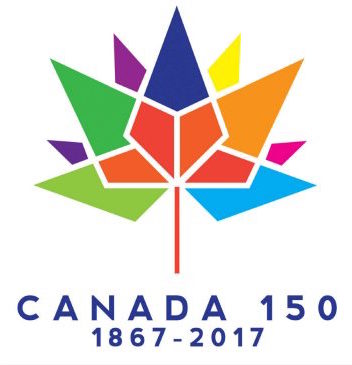Is there any topic touchier in Canada than Quebec’s identity politics?
It might be easier to answer this question from the outside looking in, but for us Québécois, conclusions are a bit harder to come by than they might be in what is (mostly) affectionately referred to as the “ROC,” or the “rest of Canada.”
Questions of identity become even harder to reconcile when, as in my case, a person is saddled with dual identities that appear to be at odds.
On one side, I am an “old-stock” Quebecer – a descendant of French settlers who were sent to establish fishing operations in the Bas-Saint-Laurent region hundreds of years ago. On the other side, I’m the grandchild of Italians who left behind farmland in Italy to immigrate to Canada in the mid-20th century — with only $5 in their pockets, as our collective mythology never fails to underline.
Then there is the ever-divisive issue of language. I grew up in a household where Dad spoke to me in French and Mom spoke to me in English. Having learned these languages at the same time, my speech is accent-free on both sides, leading Francophones and Anglophones to simultaneously conclude that I’m “one of them.”
“Bill 101 doesn’t protect the French language as much as it does those who speak it,” Verboczy writes, alluding to the anxieties that French was being phased-out of Quebec culture . . .
Somehow, I’ve always maintained a delicate balance between these two backgrounds, and the question of identity has never preoccupied my life. However, I’m fascinated by the issue of Québécois identity, which is often presented to Canadians through the lens of inflammatory think pieces in Anglophone media.
I was delighted, then, to come across the thoughtful book by Akos Verboczy titled Rhapsodie Québécoise, in which the author explores the dimensions of identity — politics, heritage and language — from the perspective of a Hungarian immigrant who “became” Canadian.
Or, rather, became Québécois?
A Hungarian in Montreal
Verboczy’s account of moving from Hungary to Canada in the 1980s examines many issues that remain hot buttons. As a pre-teen, the young Hungarian arrived in Montreal when opposition was growing against Quebec’s controversial Bill 101, the infamous language law passed in 1977 that gave French precedence in the province. As a result of this law, immigrants are required to send their children to French schools in order to ease their integration into Quebec society.
Verboczy writes that immigrants were quickly informed by others in their new communities that Francophones were “principally welfare-receiving, uneducated racists” — a sign of resentment against Bill 101 and its purveyors.
The charge of ingrained racism seems to be echoed from within our culture as well.
But Verboczy ended up embracing the language which he was forced to learn, and spends many pages sympathizing with the concerns that led to the language law’s creation. He points to the monolithic influence of American products in Quebec and the resulting dominance of English-language culture.
“Bill 101 doesn’t protect the French language as much as it does those who speak it,” Verboczy writes, alluding to the anxieties that French was being phased-out of Quebec culture — anxieties that persist today.
Is Quebec really racist?
From my observations, the suggestion of overwhelming racism in Quebec seems to have been adopted as pure fact. I’m reminded of a recent column on Gawker, which offered Americans a guide to moving to Canada if Donald Trump becomes president of the United States. When Quebec is brought up, it’s framed as an unwelcoming society, and the article’s comments mirror this characterization.
The charge of ingrained racism seems to be echoed from within our culture as well. Verboczy decries a speech made by Gabriel Nadeau-Dubois — the student spokesperson of the 2012 “Maple Spring” — in which he proclaimed that “if there is a Québécois tradition to conserve, it isn’t poutine or xenophobia.”
“Pardon? Xenophobia, a tradition?” Verboczy asks in response. “In my view, we’re actually thinking, disgusted, of that uncle at Christmas lunch who said that it’s unbelievable, this unreasonable business of Hassidic Blacks who impose themselves with their halal pork.”
He argues that caricatures of a rustic Quebec that is closed-off to foreigners have become accepted conventional wisdom over the years.
Verboczy doesn’t shy away from tricky questions regarding the experience of Canadian immigrants, and not everyone will agree with his conclusions.
Where are we going?
Such is the title of Verboczy’s final chapter, in which the immigrant-turned-defender of the French language and Québécois culture reflects on modern questions of integration.
He points to the unique challenges posed by 21st century communication technologies, which allow newly arrived immigrants to remain in constant contact with their countries of origin. Verboczy says this can slow down the integration process for immigrants, as it can “give the illusion that they never left their countries.”
In response, the author places a greater onus on immigrants to adapt to their new surroundings, arguing “they must accept that their identity will change, and that it will have to superimpose itself on a backdrop that already has its colours and reliefs.”
Verboczy doesn’t shy away from tricky questions regarding the experience of Canadian immigrants, and not everyone will agree with his conclusions. However, Rhapsodie Québécoise explores these issues with boldness, nuance and humour that is, in my view, mostly absent in mainstream media analysis.
Verboczy confidently strikes back against charges of an intolerant Quebec, offering an important perspective that is often drowned out in polarized debates surrounding the province’s identity politics.
Matt D’Amours is a Montreal-based journalist who focuses on politics, social justice and Montreal’s protest movements. He was born and raised in Montreal’s multicultural borough of Ville Saint-Laurent, where cultural diversity is an everyday fact of life. Growing up speaking English and French simultaneously, D’Amours inhabits a space between Anglophone and Francophone – between Canadian and Québécois – which affords him a critical eye towards identity politics.




